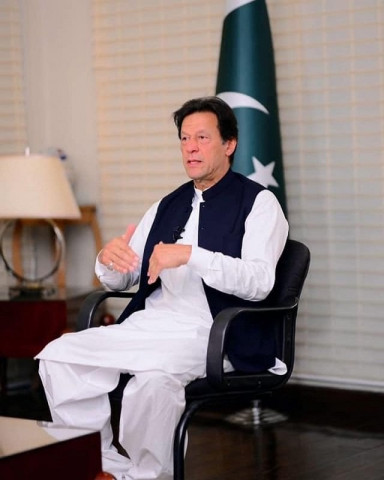Commission on public debt
Any such commission should be absolutely transparent in its proceedings and make all its findings public

Prime Minister Imran Khan. PHOTO: INSTAGRAM/@imrankhan.pti
So how did we reach here?
Our public debt is nothing more than our accumulated fiscal deficits over the years while our external debt reflects our historical current account deficits. This means that the roots of this debt pile-up go all the way to poor revenue collection, excessive increases in public expenditures, perennially low exports and sharply rising imports. It is not only about acts of commission but also about expensive and deliberate omissions that have cost this country billions.
Therefore, any commission looking into the debt pile-up would have to question the unbridled increase in size of the government, regularisation of contract employees, birth of new departments and lavish government spending. It would also have to look into our narrow tax base and expensive tax exemptions. Then come billions of rupees eaten up by our state-owned enterprises; massive circular debt owing to flawed pricing, poor energy mix and high line losses; and inefficient commodity operations that burnt taxpayers’ money into ashes. After all, all these leakages and losses ultimately formed part of the public debt. Moreover it’s not only the quantum of debt but also its composition and terms and conditions, which may have to be scrutinised by this commission.
A body with such a hefty mandate is not merely a public debt commission but rather a truth commission to uncover real reasons behind our prevailing economic crisis and then present these findings to the nation. It is an opportunity for introspection, soul-searching and course correction.
But before we do that, it is also important to ascertain if we are ready for such a leap, because the answers may unveil the bitter truth.
It is not only the individuals who have profited from poor economic decisions but also the powerful lobbies which enjoyed lucrative subsidies; institutions that conveniently kept their eyes closed and did not provide the scrutiny that they should have; and bureaucracy that violated sanctity of parliament, deviated drastically from approved budgets and took important decisions into its own hands without any due mandate.
The government must also determine the real purpose of this commission. Is it to fix responsibility on individuals or to decide on course correction? The former will create more alienation, polarisation and acrimony but the latter can possibly bring in the well-needed realisation of our flawed economic policies and set us on the right path.
Then comes the membership of this commission. Is it going to be a ruling party-nominated body holding everyone else accountable or is it going to be an inclusive and multi-partisan commission? The former, irrespective of what it recommends, will have no legitimacy beyond this government’s tenure but the latter can have a lasting impact.
Moreover, any such commission should be absolutely transparent in its proceedings and make all its findings public. Even the draft recommendations prior to any formal approval by the government should be made public.
Lastly, this commission should come up with a few implementable recommendations and not a thick report, which no one would read. We have to realise that we have to do it now but most importantly do it right, or else it will be an exercise in futility.
Published in The Express Tribune, June 18th, 2019.
Like Opinion & Editorial on Facebook, follow @ETOpEd on Twitter to receive all updates on all our daily pieces.















COMMENTS
Comments are moderated and generally will be posted if they are on-topic and not abusive.
For more information, please see our Comments FAQ